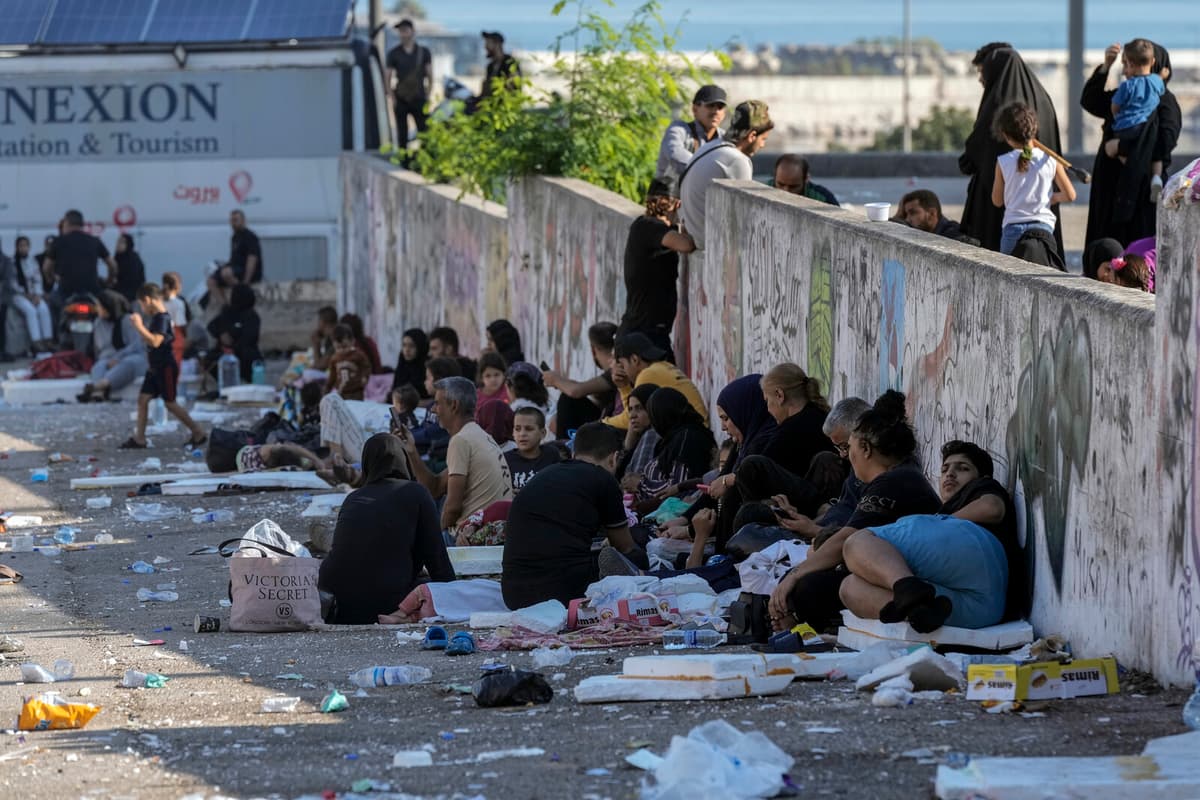Over 210,000 people have been forced to flee in Lebanon since the outbreak of the Gaza War in October last year, 120,000 of them since Monday when the clashes between Israel and the Iran-allied Shia militia Hezbollah escalated sharply.
This is reported by Charlotte Hallqvist, communications chief at the UN refugee agency UNHCR.
The situation is extremely critical and these people are very vulnerable, she says.
Difficult to get resources
The country is in a severe economic crisis, which is exacerbated by the escalation of the conflict. According to Charlotte Hallqvist, UNHCR has difficulty getting resources and has long warned that an escalation will lead to a "major humanitarian crisis".
UNHCR has so-called collective centers where almost 80,000 people are located. There, they can receive basic emergency care, supplies, food, and water.
The reports we receive are that many are sleeping outdoors. They are trying to create shelter and sleep on beaches and streets with small children and the few belongings they could bring with them.
During the week, Israel has carried out extensive airstrikes against, among other things, Beirut, and on Saturday, it was announced that Hezbollah leader Hassan Nasrallah had been killed in a "precise attack" on the suburb of Dahieh. This led many in the area to leave their homes.
Fleeing back to Syria
In addition to the hundreds of thousands who are fleeing in Lebanon, over 50,000 have fled to war-torn neighboring country Syria. A large part of them are some of the 1.5 million Syrian refugees who once fled to Lebanon. The majority of those who are now "fleeing back" are women and children, according to Charlotte Hallqvist.
People are also coming injured. One of the stronger stories from one of our colleagues was a woman who carried two dead children when she crossed the border.
Along four areas at the border, UNHCR is stationed, and the refugees are coming to a country that is severely economically and humanitarily affected.
The situation at the border is extremely difficult. There are long queues – many are trying to move with cars, and there are many who are walking, and they have almost only the clothes they had when they fled. They are crossing the border extremely tired and traumatized.






